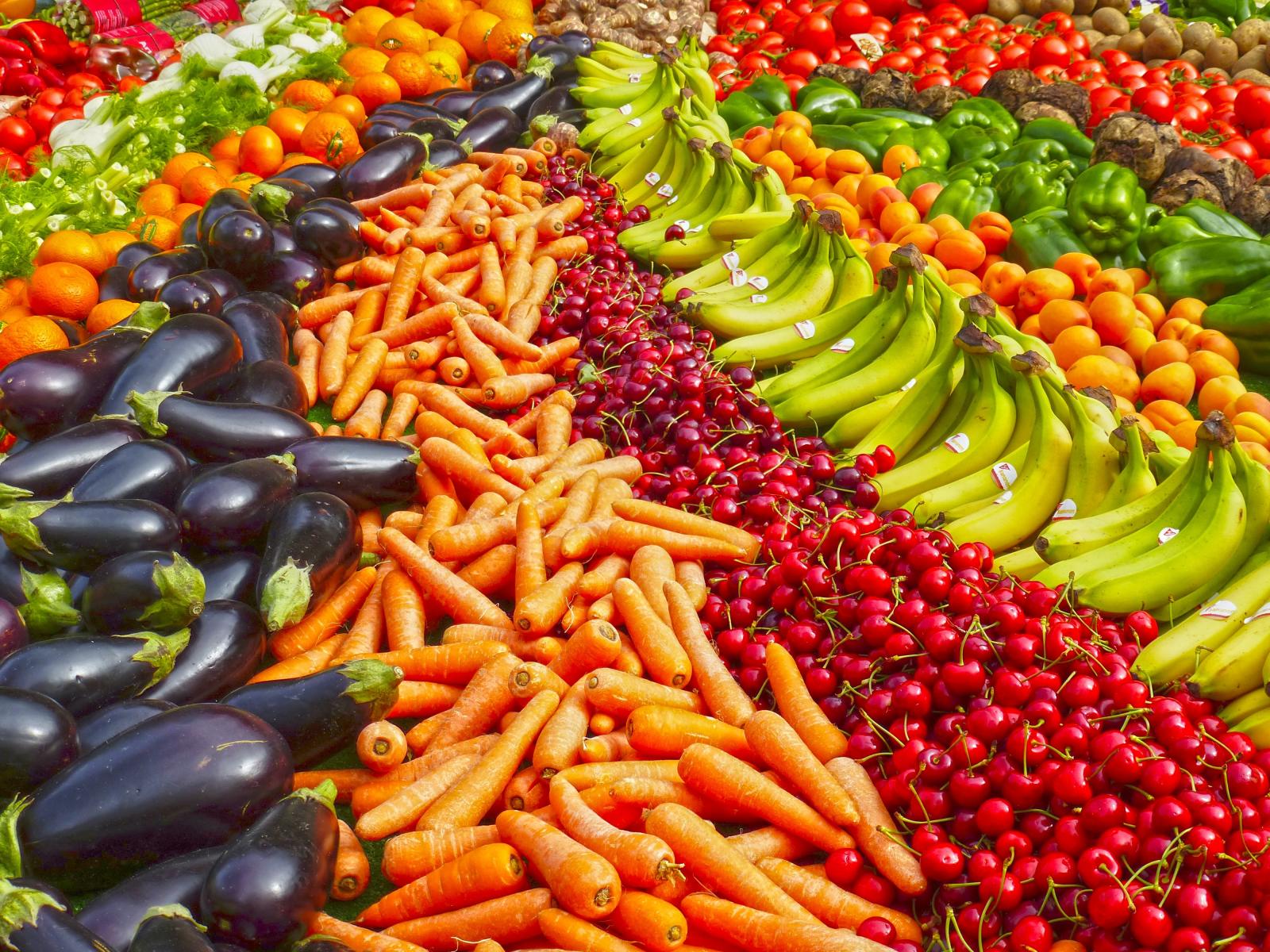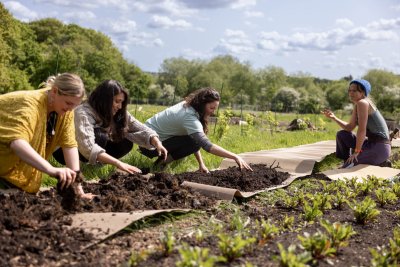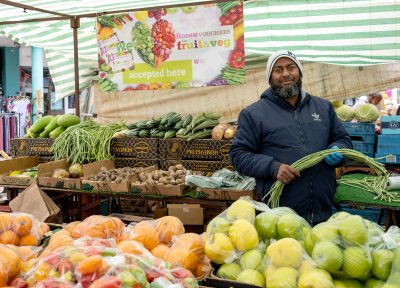News • Sustainable Farming Campaign
MPs new report: Our Planet, Our Health highlights major climate and health crisis in food system
In a new report 'Our Planet, Our Health', MPs on the Environmental Audit Committee highlight serious problems in our food system.

“The MPs are spot on with this report both in terms of timing, given the climate emergency, but also the size of the challenge. For far too long we’ve let our vital food supplies be dominated by complex global supply chains and the junk food industry. We now have a highly vulnerable, unhealthy, unsustainable and inefficient food system that creates severe and unjust health inequalities – as they outline – which needs repairing using all the tools available.We need the Agriculture and Environment Bills to be brought back fast so they support agro-ecological, nature- and climate-friendly farming systems and we need far better regulation of the supply chain so good farmers can be paid to produce more diverse and better food, to make food affordable for all and to reduce reliance on vulnerable overseas supplies. A new body ensuring a coherent approach across all departments and agencies to deliver a transition to a new food system would be valuable. Brexit presents a critical food supply and price situation for the most vulnerable in society, which needs urgent action.The MPs have acknowledged the very close relationship between environmental and human health. We welcome the MPs' call for far stronger regulation of fast food outlets and junk food marketing and the need for a strategy for healthy food cities - a core aim of the Sustainable Food Cities network that our alliance supports.”
Details of the report's findings and recommendations
‘Without rapid action to curb greenhouse gas emissions and efforts to safeguard the environment we risk causing irreversible damage to the planet. This is already having a significant and growing impact on human health, with impacts set to become more severe’ - Our Planet, Our Health.
Government is urged to publish information it holds on food security.
A high dependency on imported fresh food, coupled with failure to act on climate breakdown, is risking national food security, say MPs. The EAC’s report Our Planet, Our Health highlights the extent to which climate change could affect the health and well-being of the UK’s population. The Planetary Health inquiry considered the effect of environmental damage and climate change on health, food security, life in cities and air quality.
Environmental Audit Committee Chair Mary Creagh MP said:
“Everything we do to the planet, we do to ourselves. The health of the planet matters because it affects what we eat and whether we can eat in future. We import nearly half of our fresh fruit and vegetables from countries at risk from climate breakdown.
“We are facing a food security crisis, exacerbated by uncertainty over the UK’s future trading position with the EU and the rest of the world. Ministers must now publish all the information they hold from Operation Yellowhammer on food security and likely costs in the event of a no-deal Brexit.
“More people are living in cities at risk from over-heating and water shortages, they’re breathing polluted air, eating more fast food and getting less exercise. What’s needed is a planetary health champion to put this agenda at the heart of government.”
On food production and security, the report expresses deep concern about:
- The impact of food price rises on the poorest people in the UK, particularly vulnerable groups like children and pensioners
- Government having ignored advice on food security from the Committee on Climate Change
- The fact that environmental change is projected to have major impacts on global food systems, affecting UK food security and our ability to deliver healthy, sustainably produced diets
Food security in a changing climate
The EAC report says that Government should set out how it plans to maintain UK food security in a changing climate.
The report accuses the Government of complacency over the risk to food security posed by climate breakdown, particularly in the context of Brexit. It calls on Ministers to publish immediately all information relating to food security and cost risks associated with a no-deal Brexit, in advance of the food security assessment due by the end of 2019. It should also accept advice from the Committee on Climate Change about food security risks and set out a plan for maintaining UK food security in a changing climate.
Producing more food in the UK would reduce the current dependency on a handful of countries, a situation described as “risky”.
In the UK, food contributes up to 30 per cent of total greenhouse gas emissions, with food waste totalling 10 million tonnes every year. In future, extreme temperatures and rising rainfall could increase disease among the UK’s livestock, with crops likely to be hit by more frequent water shortages.
The EAC report further recommends that Government should:
- Ensure its National Food Strategy recognises the risks to national food security from importing 40 per cent of the UK’s fruit and vegetables and explore policies to mitigate these risks and ensure that the UK delivers healthy diets to all income groups, particularly the poorest, especially in the event of a no-deal Brexit
- Promote healthier, more sustainable diets to deliver benefits for people and the environment, including a reduction in meat and dairy consumption
- Set up a National Food Council with policy covering food production, nutrition and public health to share data and expertise
- Further restrict advertising of high fat, sugar and salt products and consider using financial incentives to promote access to, and consumption of, healthy food
- Set annual targets to reduce food waste at every level of the food supply chain, consistent with the Government’s aim to achieve net zero emissions by 2050 at the very latest
- Set up a joint unit with a single point of accountability for planetary health at both ministerial and senior civil service levels and champion planetary health at forthcoming international meetings
Degradation of systems that support human life ‘unprecedented’
The EAC report finds that:
- Systems that support human life rely on a healthy natural environment
- There is growing evidence that natural systems are being degraded to an extent unprecedented in human history
- Current rates of extinction are at 100 to 1,000 times more than what is considered natural biodiversity loss
- Government's progress towards meeting the Aichi targets by 2020 falls woefully short
- Climate change and other stressors have led to a significant reduction in pollinating insects which help pollinate a wide range of crops, including many fruits and vegetables that are vital for a healthy human diet. Insect pollination is counted as an important form of reproduction for at least 87 types of common global food crops, accounting for more than a third of annual global food production by volume. MPs note reports of a dramatic decrease in insect populations, with one witness describing insects as the "canaries in the coalmine…on the frontline of the extinction crisis."
The Report calls for Public Health England to broaden its key performance indicators to include climate resilience and adaptation measures to tackle emerging diseases with guidance to general practitioners and the pharmaceutical industry on Lyme disease, malaria, the zika virus and other tropical diseases which are novel in the UK.
Sustainable Cities
The EAC report says that action is needed to ensure access to clean air and healthy food in cities, stating that:
- An estimated 83 per cent of the UK population lived in urban areas in 2017
- City design and lifestyles contribute to poor outdoor and indoor air quality
- Poor quality housing and city design has significant harmful impacts on public health, mental health and life expectancy
- Integrated urban planning is essential to ensure better planetary health outcomes
- Government should manage risk of water security in cities and set a default 100 litres per capita per day water consumption target
- Lack of access to healthy food and proliferation of unhealthy fast food outlets leading to rise in obesity
The report calls for city dwellers to be given access to healthy, sustainable food and found a proliferation of fast food outlets has encouraged a culture of unhealthy eating habits. It calls for more powers to councils to restrict fast food outlets in areas such as Birmingham where the Committee heard of children passing up to ten fast food outlets on their way to school. Better urban planning would also include the provision of more green spaces and active transport networks to encourage more active lifestyles.
EAC repeats its call for the introduction of a new Clean Air Act, first made in a joint report in 2018, to mitigate against the impact of poor air quality on human health with new legislation introduced as soon as possible. The threat from indoor air pollution was found to be a major area of concern. The Government’s review of building regulations should include changes to mitigate the negative impacts of indoor air pollution, in line with advice from the Committee on Climate Change.
Further details
A full list of recommendations can be found in the report on the EAC website.
Sustain's recent work on a no-deal Brexit shows the crisis unfolding for the most vulnerable in terms of food supplies and affordability.
Information on Sustain's work on the climate emergency and food systems can be found here, on Sustainable Food Cities here and our alliance's proposals for the Agriculture Bill here.
Published Tuesday 17 September 2019
Sustainable Farming Campaign: Sustain encourages integration of sustainable food and farming into local, regional and national government policies.





